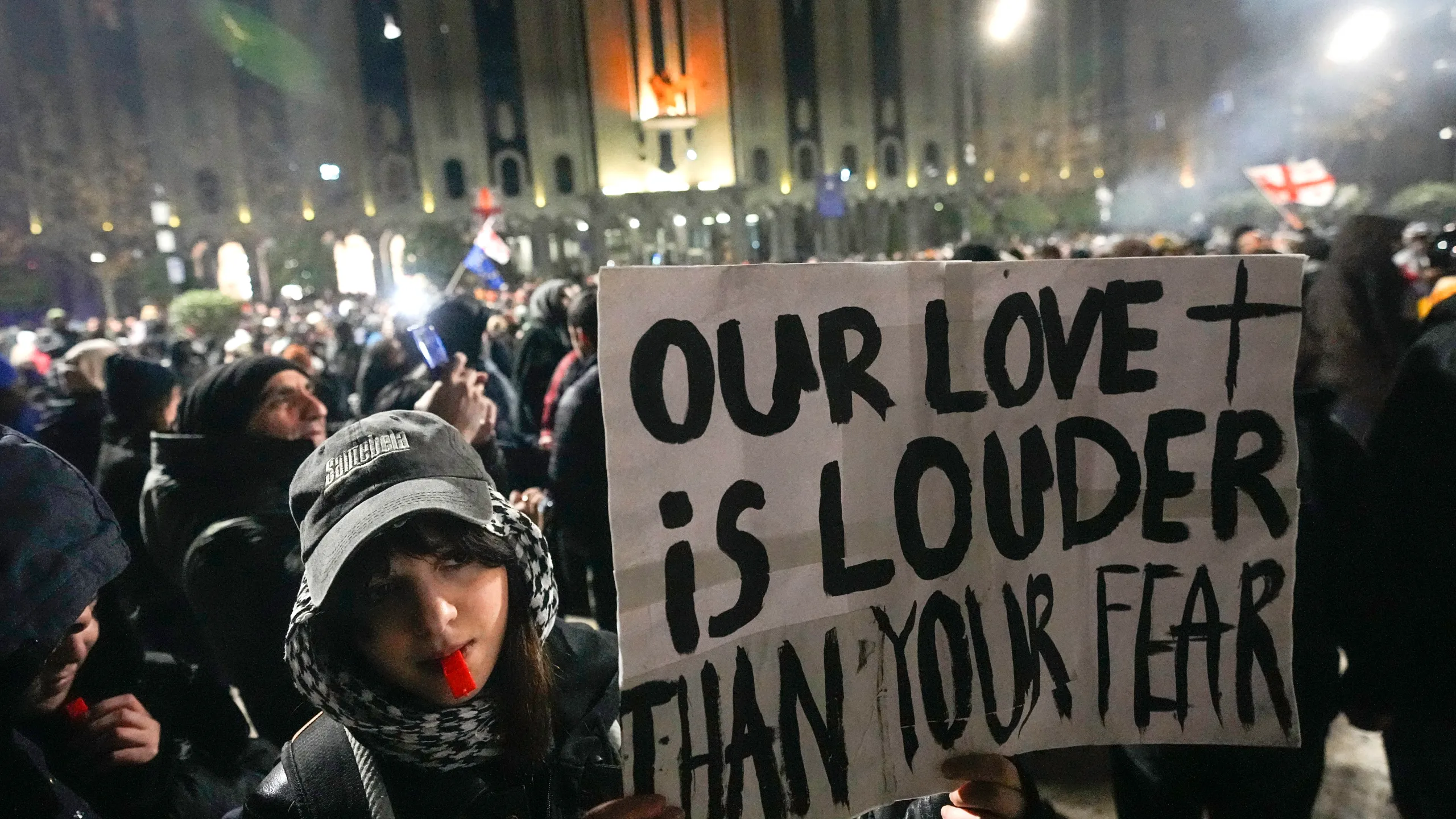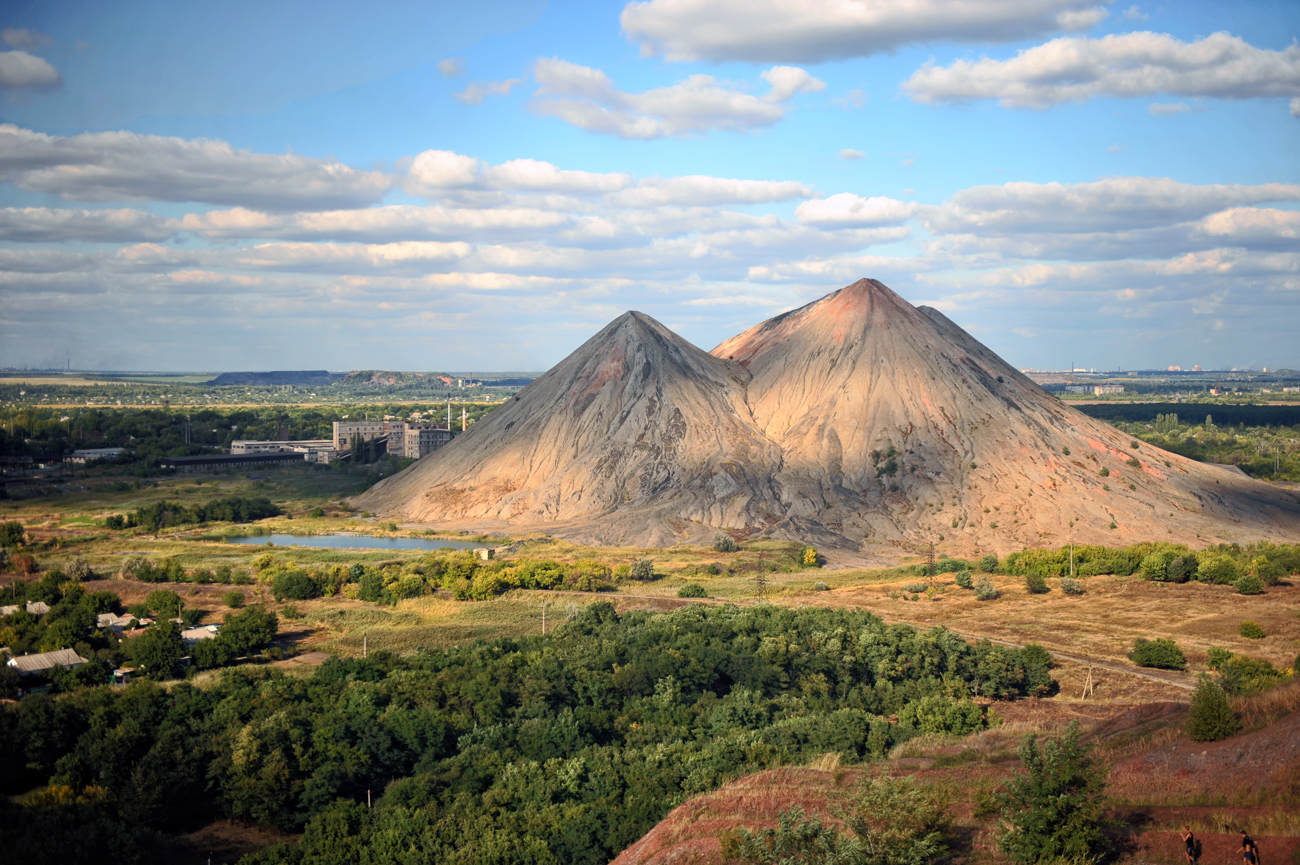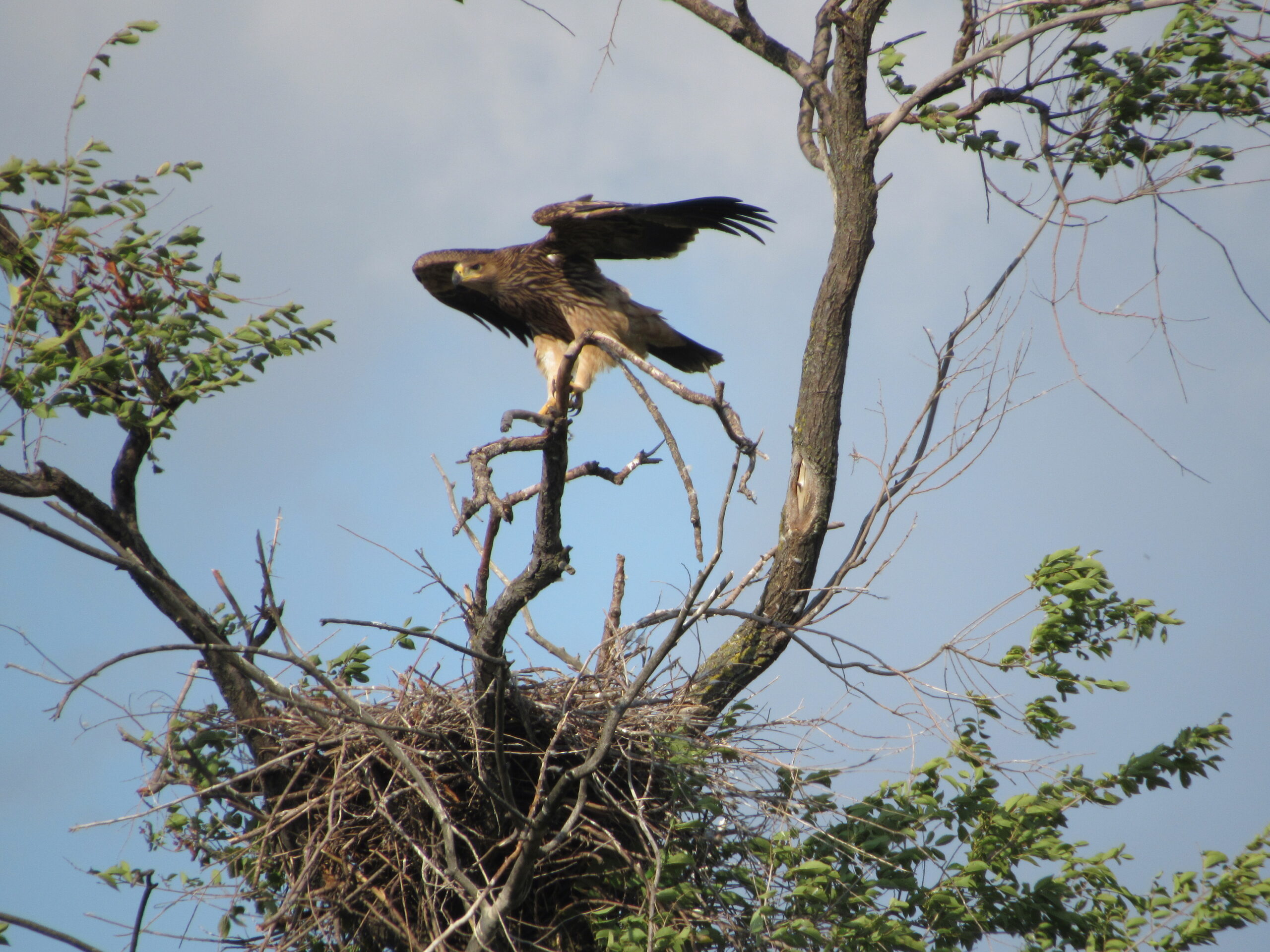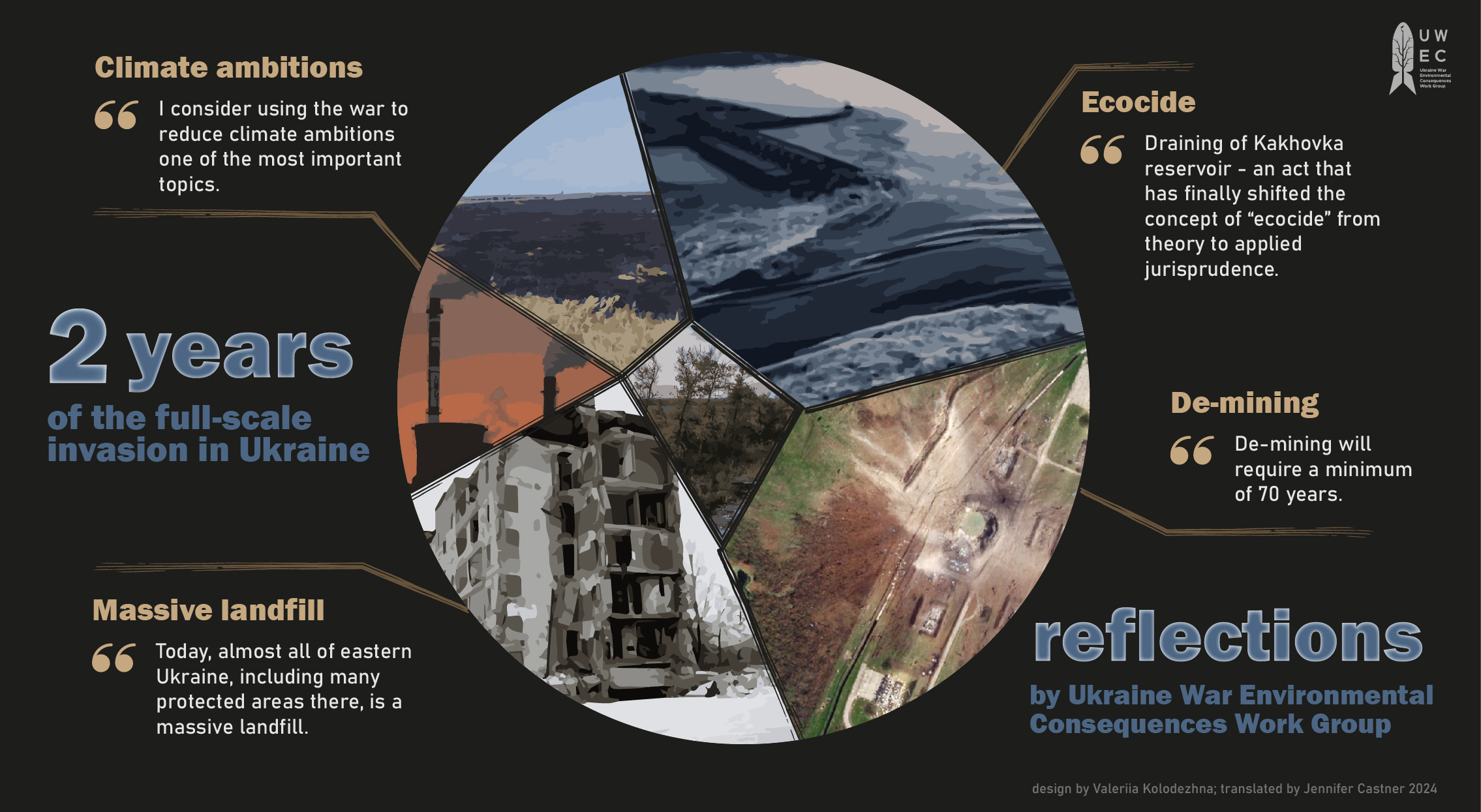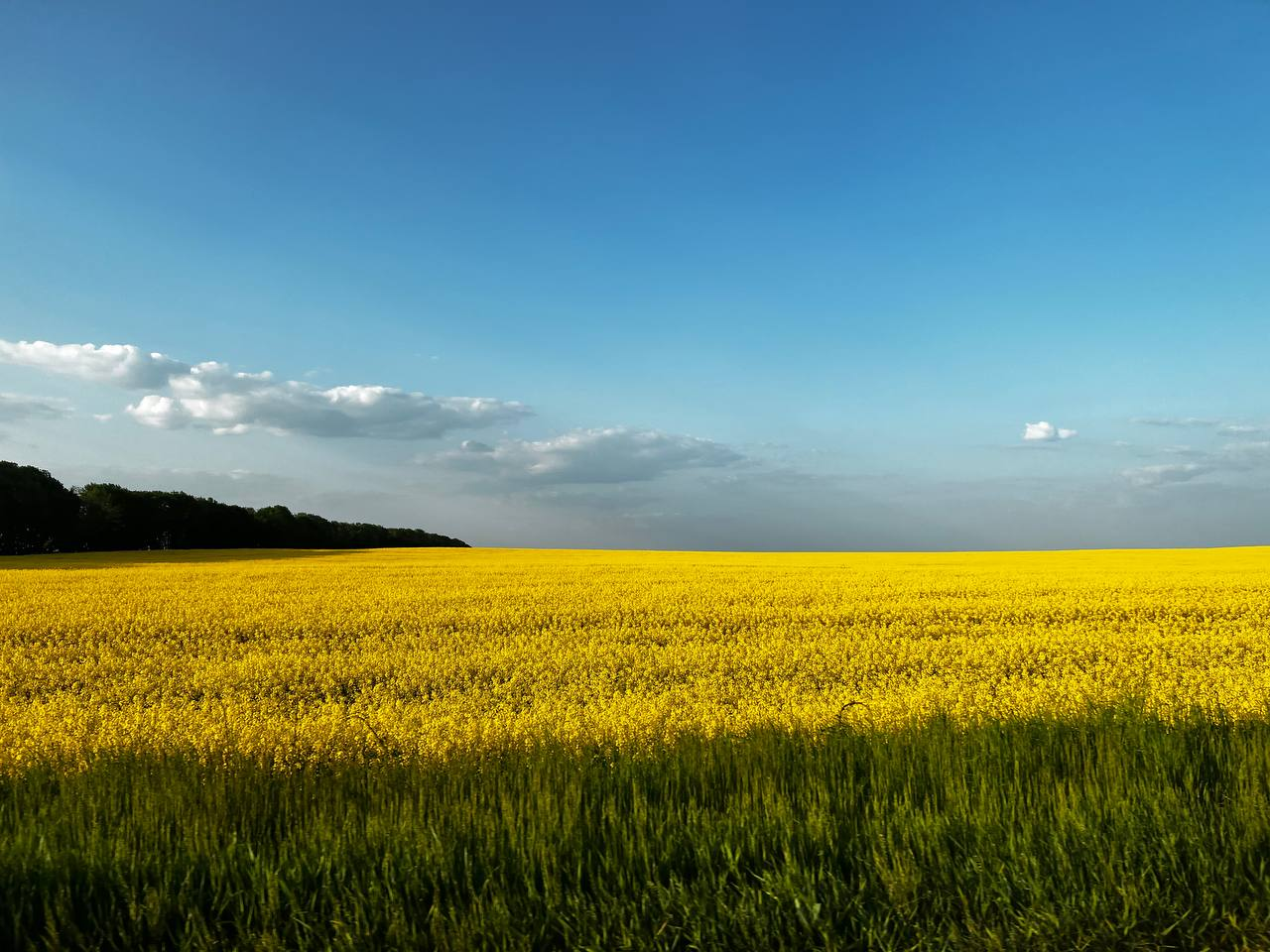Alexej Ovchinnikov
In the first part of this series we reported on the persecution and pressure that environmental activists have faced in Belarus since 2020 and which have only increased since the full-scale invasion. In part two, we look at the situation in Georgia, a country that is also currently mired in political crisis.
With the world distracted by the full-scale invasion of Ukraine and Israel’s bombardment of Gaza, media have paid only sporadic attention to the ongoing political crisis in Georgia, which began when the opposition accused the ruling party Georgian Dream of electoral fraud during parliamentary elections in 2024 in which it tightened its 12-year grip on power.
Meanwhile, the country is suffering significantly from climate and environmental problems—issues that are only intensifying. The year 2025 has been marked by both abnormal drought and abnormal precipitation, and Georgia’s glaciers continue to melt, which could lead to a repeat of the tragedy in the mountain resort of Shovi in 2023, where a landslide killed at least 32.
Political crisis in Georgia. A page out of the Russian playbook
In April 2024, large-scale street protests broke out in Georgia after the government pushed through a bill to introduce a “foreign agent” law similar to that in force in Russia, despite widespread criticism from the Georgian public, NGOs and representatives of Western democracies. Protesters and civil society groups had previously forced the government to back down in 2023 when it first attempted to pass the legislation.
Under the law, any legal entity or individual in Georgia receiving funding from abroad can be designated a “foreign agent.” The legislation mandates that all non-governmental organizations and initiatives undergo a complex registration process, during which they are not only required to disclose information about their work (especially dangerous when it involves working with vulnerable and sensitive groups of people who would prefer information about them not be made public), but also be stigmatized with the label of “foreign agent.”
After the parliamentary elections of October 2024 sparked further protests, Georgian Dream, now enjoying a practical monopoly on power, turned to the use of strongarm tactics, using security forces to brutally suppress dissent. The opposition, along with President Salome Zurabishvili, decided to boycott parliament, labeling it illegitimate. However, this attempt to change the government failed. On the contrary, as the only party represented in parliament, Georgian Dream now had the ability to pass the laws it wanted. One such example was a law banning so-called “LGBT+ propaganda,” making life dangerous for the country’s LGBT+ activists. Pressure continued to build on organizations that refused to register as “foreign agents.” There is now talk of criminal prosecution for failing to register. Some activists have decided to leave Georgia.
The “foreign agents” bill was later revised and amended, supposedly to bring it into alignment with the Foreign Agents Registration Act (FARA) in the U.S., which is intended to counter foreign organizations that engage in political activity. It’s worth noting, however, that most public programs in Georgia run on international aid. Virtually every school, organization and village receives support from “foreign agents.” For example, the country’s oldest national park, Lagodekhi, was largely financed by foreign funds. The same applies to most environmental projects in Georgia, from recycling to environmental protection.
This situation is having a direct impact on the work of both NGOs and environmental activists. Georgian Dream has consistently resorted to conspiracy theories in an attempt to tarnish the image of protesters and members of the opposition, claiming civil society activists are agents of a “deep state” and a “shadow government.”
Many of Georgia’s environmental organizations refused to register as “foreign agents,” which resulted in their activities being frozen. A good example is the largest Georgian environmental organization, Green Alternative, which appears to have ceased operations—at least, its website and social media have not been updated since February-March 2025.
Georgia Dream turns its back on Ukraine
Georgian Dream justifies its increasingly repressive measures, among other things, by citing its reluctance to be drawn into a war with Russia. In the lead-up to both the 2024 parliamentary elections and the 2025 municipal elections, the party’s campaign posters featured photographs of devastated Ukrainian cities, which were set alongside pictures of “prosperous” Georgia. Critics questioned the morality of such a propagandistic approach.

It was all a stark contrast to the staunch support shown for Ukraine during the first months of the full-scale invasion, when every Georgian city was adorned with Ukrainian flags. This is hardly surprising—parts of Georgian territory (South Ossetia and Abkhazia) are still considered to be under indirect Russian occupation. The governments of these self-proclaimed breakaway republics are backed by Moscow, and Georgia fought a brief war with Russia over South Ossetia in 2008.
It is clear that the repression and rollback of democracy in Georgia, as well as the reversal of Tbilisi’s trajectory toward European integration, are having a direct impact upon environmental activists in the country. A lack of financial support (following the adoption of the “foreign agent” law, foundations are unable to work with Georgian organizations on a full basis), the drawn-out political crisis, the stigmatization of activism and the polarization of society—all of this is hampering the work of organizations and projects, and they are facing challenges they had not encountered prior to 2024.
Creating safe spaces for activists
Nini Khuroshvili is one of the co-founders of Ecovillage Georgia, a project that is not only an experiment in creating an environmentally friendly, sustainable settlement in the country, but also aims to serve as a “safe space” for activists.
An environmental and climate activist whose background is originally in the arts, Khuroshvili first became inspired by the idea of creating an environmentally friendly, egalitarian form of human coexistence after volunteering in an ecovillage in Western Europe eight or nine years ago.
“I lived in different places and learned more about sustainable living, not just in theory but also in practice, as part of everyday life. I learned about how to self-organize as a community, about teamwork, how to develop permaculture and sustainable farming, environmental infrastructure and much more,” Khuroshvili told UWEC Work Group.
As a result, she was inspired to create an ecovillage in Georgia, an idea which she developed with friends and other activists. The long process of forming the community began. This would become the core and foundation of the ecovillage, which they envisioned as a settlement where people united by a common idea would build homes and live permanently. It took about five years to organize the community structure, develop a decision-making methodology and search for a suitable plot. In December 2023, they finally purchased a piece of land in the Lagodekhi district, and the project began to take shape.
“I work in activism, not just environmental activism but also queer activism, feminism, and ecofeminism in Georgia. So when we created the Ecovillage project, the plan from the start was to organize it so that it could accommodate people. For example, if they needed time to recharge their batteries, we’d be able to organize retreats for different groups. Because we have a lot of land and ample benefits to share. We have a stream and a small forest. People can relax here, feel safe, and discuss important topics in a safe environment, which is especially important in the current political situation.”
The country’s lurch into political crisis in 2024 brought challenges to Ecovillage Georgia, as it did to other environmental initiatives. It proved virtually impossible to obtain new grants, having a serious impact on planning and financial support for the project. It also affected the participants themselves, who experienced—and continue to experience psychological pressure. Many plans for 2024-2025 had to be postponed and adapted to the current circumstances. However, the project has increasingly become able to play the role of a “safe space.”
Khuroshvili explains that another side-effect of the country’s ongoing political crisis is that environmental and climate change issues, which have become increasingly common in Georgia in recent years, have vanished from the agenda. Not that the problems have gone away, of course; they are clearly visible and are the subject of frequent discussion by those living in rural areas, who are more exposed to the consequences of climate change than city dwellers.
A good example of this is the extreme snowfalls in the Guria and Adjara regions in February 2025, which left settlements completely cut off. With no government response, volunteers stepped in to help stranded residents in the worst-hit areas, though they were unable to prevent a number of fatalities.
Snow is not the only problem. Every June, Georgia suffers from severe hail and rain, which destroy crops. On August 3, 2023, a mudflow caused by melting glaciers in the Racha region killed 18 people, with another 18 never found. August 2025, however, was unusually hot, resulting in water shortages in some regions. In the eastern region of Kakheti, one of Georgia’s largest agricultural regions, entire rivers dried up.
Climate issues slip out of sight
Neither the government in Tbilisi nor the country’s municipal authorities, however, appear to have any desire to openly address the consequences of climate-induced extreme weather events, which are becoming increasingly common in Georgia.
“There’s no climate adaptation and mitigation plan, which Georgia should have implemented long ago. And while three years ago the government at least declared its intention to work in this area as part of its European integration plans, it’s all changed recently. Today, I have the feeling that the climate agenda is no longer being discussed,” says Khuroshvili.
One relatively positive development is that some villages have begun to revive since the COVID-19 pandemic—many city dwellers took the decision to move out to the countryside, even if only for the summer. After the protests petered out, the desire to escape the stress of city life only intensified. In view of the ongoing outflow of rural populations to cities, this was a welcome sign. Furthermore, these newcomers bring with them a modern approach to agriculture, green practices and an interest in organic produce.
But with civil society initiatives closing down and disappearing, this is clearly not enough. More worryingly, the suspension of activist work primarily affects small groups, remote regions, and those spaces and communities that were already deprived of government support and relied on NGOs. Now that they have been designated “foreign agents,” these NGOs are facing not only difficulties in finding funding but also coming under political pressure.
“We don’t need government support; we can handle this ourselves,” says Khuroshvili. “But don’t put pressure on us. Don’t arrest our friends. Don’t make us experience additional stress or force us to navigate the complexities of new laws. As a group, we can cope with this, but leave us alone,” she explains, adding that even given the war in Ukraine and the economic and political crisis in Georgia, Ecovillage can become a sustainable project and a safe space for others.
“Maybe we can find solutions to environmental and climate problems for the local population. But if we want to achieve this, we shouldn’t create additional difficulties. Yes, we need financial support and additional resources, but I think we can find these if the situation around us becomes more stable.”
“It’s also crucial today for environmental and climate initiatives—not only in Georgia but throughout the Caucasus—to set up cooperation, form networks and share their experiences, energy and resources. This will not only preserve projects but also gives them a chance of developing.”
When asked what keeps her focused and motivated to work during challenging times, when environmental and climate activism is under pressure not only in the Eastern Europe, Caucasus and Central Asia (EECCA) region but also globally, Khuroshvili says that above all she is driven by people’s faith in what she and her colleagues are doing.
“It’s also important to understand that whatever you do, it has meaning,” she explains. “As I continue working on the project, I hope that it will be beneficial and that it’s important. And these feelings are reinforced when I see the reactions of those who come to Ecovillage Georgia, work the land, cook for each other, prune trees and bring their ideas to life.”
“I see how diverse the people who come to us are, and yet we manage to create harmony through relationships with each other and with nature. Both we and they are grateful for this opportunity and this experience. And this is what drives me. It’s very important to me. Through this gratitude, you feel a connection with the land.”
Eco-communities and ecovillages are increasingly being presented as both a gathering place for activists and a networking space. This not only goes for Georgia but is also the case in Ukraine, where ecovillages like Tepla Hora have played a key role in hosting migrants and rehabilitating soldiers and other affected people affected by the all-out Russian invasion. In the next and final article in this series, we will look at how environmental organizations and initiatives in Ukraine have coped with this immense challenge in the last few years.
Translated by Alastair Gill
This series was produced as part of the Thematic Networks of PULSE, a European initiative that supports transnational journalistic collaborations. You can read the first article in this series here.
Main image source: AP Photo/Pavel Bednyakov

